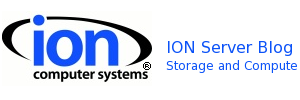Finally, we get to the question, “What replaces hard disk drives?” As many people already know, the answer is solid state disks or SSDs. SSDs are made today to fit the shape, size and interfaces used by hard disk drives (HDDs), but they consist mostly of Flash memory instead of spinning rust, plus a controller and some RAM for buffering, just like a rotating disk. Many people see that SSDs will someday replace HDDs. I suggest that now is the right time for that transition to happen, in many cases.
SSDs are shipped today in three basic technologies: SLC or single-layer cells, MLC or multi-layer cells and eMLC or enterprise MLC. Unlike HDDs, SSDs can have a significant difference in write speed compared to read speed. Reads are VERY fast. Depending on the design, writes can take longer or a lot longer. There are plenty of articles out there describing the differences and reasons, so I won’t do that here. SLC comes in lower capacities, but delivers much higher write performance in general and random write performance in particular. MLC drives deliver very similar read speeds, but much lower writes. For many applications – notebook boot drives, media-on-demand servers, content caches, and even many databases – are “read-mostly”. Data gets written, and often, but most of the I/O is read. MLC SSDs are great for these applications. eMLC, or enterprise MLC, SSDs fall in between MLC and SLC when it comes to write speeds.
Many people compare on purchase price before anything else, so let’s start there. A typical PC boot drive might be around 250GB and sell for maybe $150. A comparable SSD might sell for almost 3 times as much, so if that is exactly what you want, the HDD is definitely less expensive. Let’s go to the other extreme, the highest level of read/write random I/O performance. An 800GB eMLC SSD, provisioned at 640GB, sells for about $2400. Yes, that’s a lot of money for a single drive, but compared to that short-stroked 15k RPM disk at $18/GB, the SSD is only about $3.75/GB, a bargain! What about performance? That SSD can sustain as much as 36,000 random write IOPS and up to 75,000 random read IOPS! 1 Even taking the lower write number, it is 72x as fast as the enterprise HDD. If your application is more read oriented, then an 800GB MLC SSD, provisioned for 640GB, will cost you about $2/GB and will still deliver up to 75,000 random read IOPS. 2
